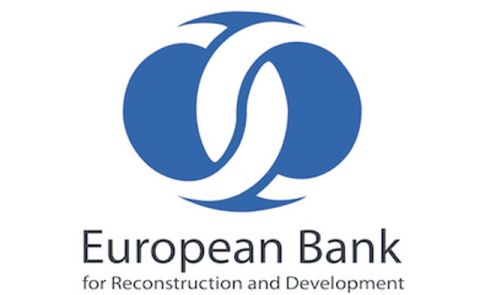
Armenia Rated Partially Free in Freedom House’s Nations in Transit 2024 Report
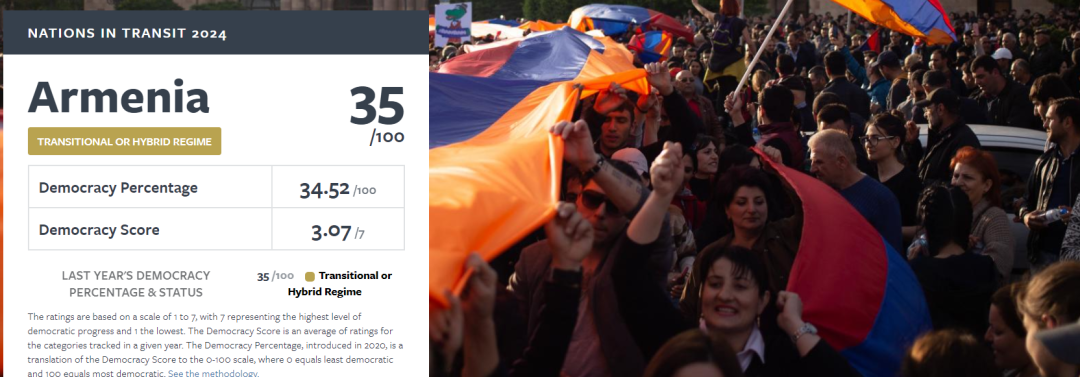
Armenia received a rating of Partially Free in the Freedom in the World 2024 report by Freedom House, an annual assessment of political freedoms and civil liberties globally.
Armenia’s National Democratic Governance rating decreased from 2.50 to 2.25, attributed to the executive branch's increased consolidation of power, ongoing instances of central authorities surpassing their mandates by dismissing opposition mayors, and the lack of transparency in the ruling party’s financial affairs. Consequently, Armenia's Democracy Score dropped from 3.11 to 3.07.
According to the report, in 2023, Armenia grappled with significant political challenges primarily centered around security issues, particularly its relations with Azerbaijan and the ongoing conflict over Nagorno-Karabakh. The failure of Russian peacekeepers to address the crisis further strained Armenia’s ties with Russia, leading to a warming of relations with Western partners, especially the EU. Despite the political polarization between PM Pashinyan’s Civil Contract party and the opposition, Civil Contract maintained its popularity while the opposition struggled to challenge the government effectively. The Yerevan City Council elections highlighted the ruling party’s dominance but also raised concerns about electoral fairness and abuse of power. Additionally, transparency issues regarding funding sources for Civil Contract raised questions about the party’s integrity. Despite these challenges, Armenia made positive strides in various sectors, including judiciary, police, anti-corruption efforts, and education. However, implementation remained challenging, and meaningful reform often depended on decision-makers discretion.
The lowest score was in Armenia’s Judicial Framework and Independence. In 2023, Armenia faced challenges in its judicial framework and independence, with concerns over controversial decisions by the Supreme Judicial Council (SJC) and the appointment of judges with questionable records. Pretrial detention remained prevalent, particularly against opposition figures, despite alternative methods being adopted since 2021. Criticism of the Ministry of Justice and the SJC led to the firing of Judge Davit Harutyunyan, highlighting concerns over judicial code provisions and disciplinary procedures recommended by international bodies like the OECD and the Venice Commission. Cases of police violence against citizens and detainees increased, raising alarms among public watchdogs. The establishment of a new Ministry of Internal Affairs aimed to enhance civilian control over the police, but the appointment of a former police chief as minister faced protests from civil society organizations. Despite efforts to reform law enforcement, including the extension of the Patrol Service trained to international standards, public trust in the police declined by 6 points by 2023.
See Also


Pashinyan and Mirzoyan Hold Separate Meetings with European Leaders to Focus on Armenia’s EU Integration, Human Rights Progress, and Regional Developments
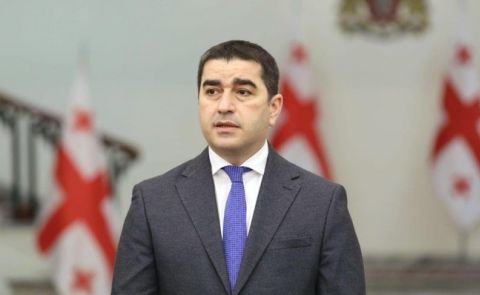
Georgian Parliament Speaker Participates in EU Parliamentary Conference, Engages in High-Level Bilateral Talks
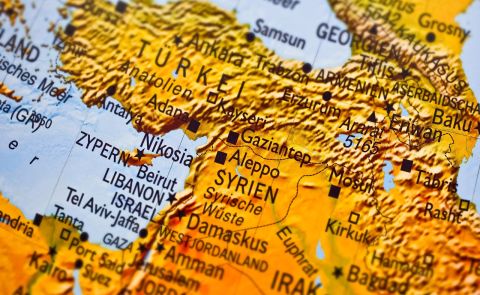
Separatist Abkhazia and Syria Discuss Strengthening Academic Ties, Potential Agreement Between Universities
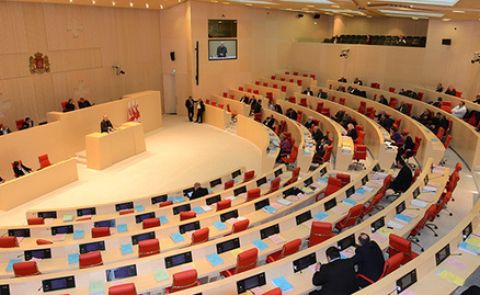
Georgia Announces Legislative Changes Targeting Foreign Nationals in Anti-Government Protests

